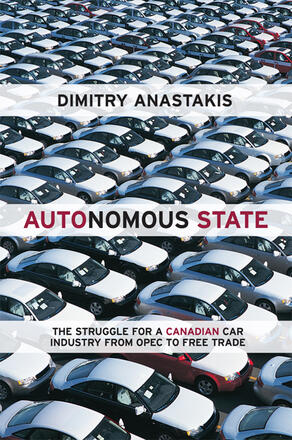
Autonomous State
The Struggle for a Canadian Car Industry from OPEC to Free Trade
La description
Autonomous State provides the first detailed examination of the Canadian auto industry, the country’s most important economic sector, in the post-war period. In this engrossing book, Dimitry Anastakis chronicles the industry’s evolution from the 1973 OPEC embargo to the 1989 Canada–US Free Trade Agreement and looks at its effects on public policy, diplomacy, business enterprise, workers, consumers, and firms.
Using an immense array of archival sources, and interviews with some of the key actors in the events, Anastakis examines a fascinating array of topics in recent auto industry and Canadian business and economic history: the impact of new safety, emissions, and fuel economy regulations on the Canadian sector and consumers, the first Chrysler bailout of 1980, the curious life and death of the 1965 Canada-US auto pact, the ‘invasion’ of Japanese imports and transplant operations, and the end of aggressive auto policy-making with the coming of free trade.
More than just an examination of the auto industry, the book provides a rethinking of Canada’s tumultuous post-OPEC political and economic evolution, helping to explain the current tribulations of the global auto sector and Canada’s place within it.
Récompenses
- Short-listed, Canada Prize in the Humanities awarded by Federation for the Humanities and Social Sciences 2014
- Joint winner, Hagley Prize in Business History awarded by The Business History Conference 2014
- Winner, Best Book in Political History awarded by Canadian Historical Association 2014
Reviews
‘Deeply researched and lucidly argued by a historian in command of his field, Autonomous State is a valuable addition to automotive history and a distinguished contribution to policy history. ’
- Tom McCarthy
‘This is a well-researched book, with substantial archival research having been conducted in Canada and United States… There is plenty to be learned by political scientists interested in international relations, public policy, and political economy (both nationally and internationally). ’
- Duane Bratt
‘There is much to like about this work. It is a solid piece of academic research. It reaches beyond mere facts of how the industry evolved undermanaged trade…and how the Auto Pact paved the way for the 1989 Free Trade agreement. ’
- Wayne Lewchuk